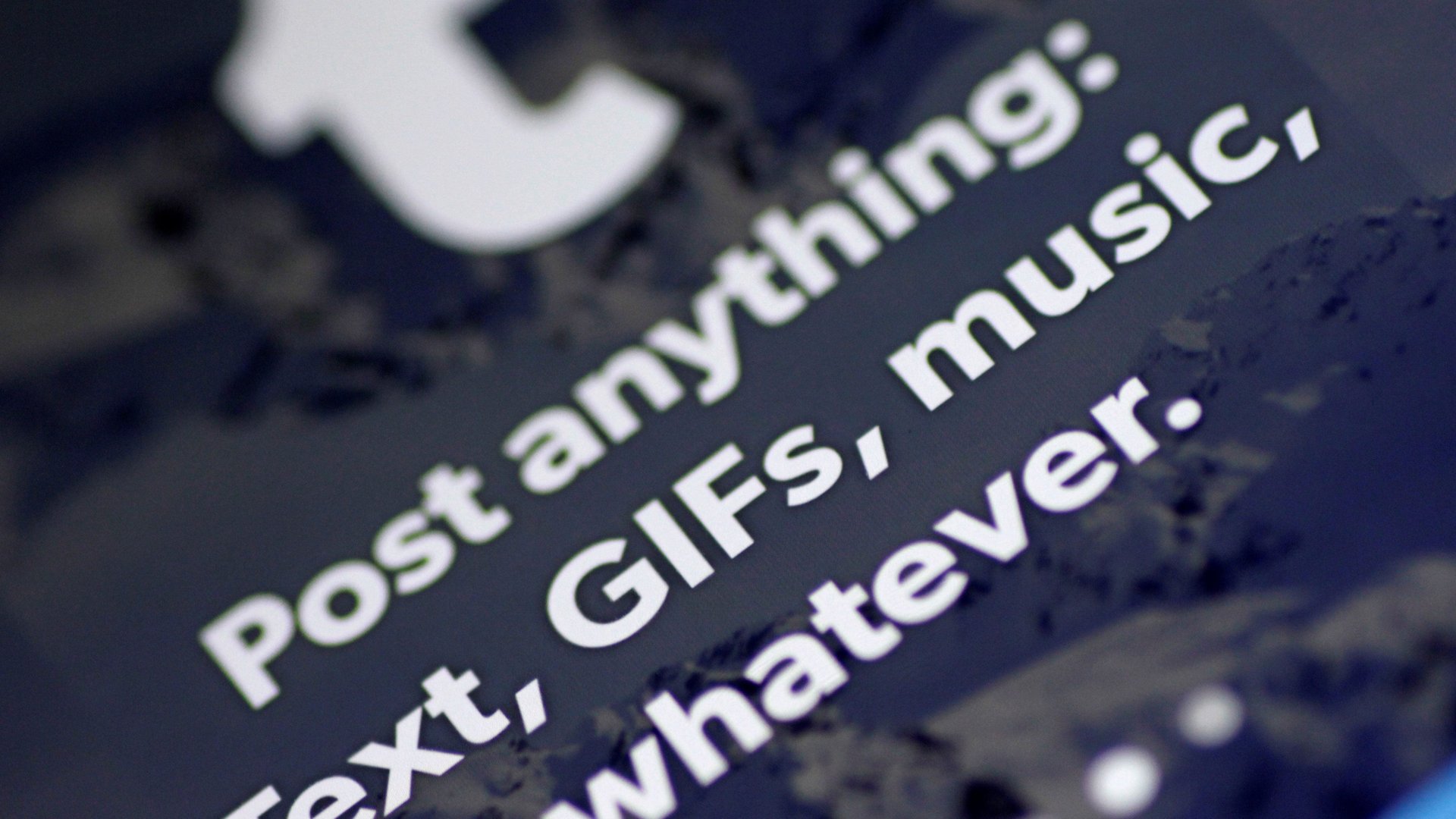Tumblr is banning porn and other adult content
Tumblr, a social media platform with historically more lax content moderation than its peers, is banning porn and adult content on its site, starting Dec. 17.


Tumblr, a social media platform with historically more lax content moderation than its peers, is banning porn and adult content on its site, starting Dec. 17.
“As Tumblr continues to grow and evolve, and our understanding of our impact on our world becomes clearer, we have a responsibility to consider that impact across different age groups, demographics, cultures, and mindsets,” Tumblr CEO Jeff D’Onofrio wrote in a blog post. “Bottom line: There are no shortage of sites on the internet that feature adult content. We will leave it to them and focus our efforts on creating the most welcoming environment possible for our community.”
The new policy reads:
Don’t upload images, videos, or GIFs that show real-life human genitals or female-presenting nipples —this includes content that is so photorealistic that it could be mistaken for featuring real-life humans (nice try, though). Certain types of artistic, educational, newsworthy, or political content featuring nudity are fine. Don’t upload any content, including images, videos, GIFs, or illustrations, that depicts sex acts.
D’Onofrio said in his post that over recent months, “inspired by our storied past,” the company had been thinking about how to “build a foundation for a better Tumblr.” What he did not say is why the policy was changed at this particular time.
The Tumblr app disappeared from Apple’s App Store in November, after the company discovered child pornography, which was prohibited, in an audit. But it’s been ramping up its content policing and its treatment of adult content for more than a year now. Katrin Tiidenberg, a researcher and professor at Talinn University in Estonia, who studies adult content on Tumblr said that these changes have roughly corresponded with the sale of Yahoo, Tumblr’s parent company, to Verizon in June 2017.
“This is clearly a profit-based decision, as it is difficult to sell intermittently NSFW [not safe for work] feeds to advertisers,” Tiidenberg said in an email.
According to Amazon’s Alexa traffic ranking, Tumblr is the 65th most popular website in the world (the ranking combines average daily visitors and page views over the past three months).
Exceptions to the policy are photos of breastfeeding women or mothers giving birth, as well as “health-related situations” like mastectomy or gender confirmation surgery. “Written content such as erotica, nudity related to political or newsworthy speech, and nudity found in art, such as sculptures and illustrations, are also stuff that can be freely posted on Tumblr,” the policy states—although even before the policy was introduced, artists were having their blogs removed, The Daily Dot reported.
Content flagged as adult will now be only viewable to the blog’s owner.
Social media users—on Tumblr itself, and Twitter—are lamenting the move.
She said the new policy could hurt the platform’s viability, risking turning Tumblr into another Reddit or Facebook, as its culture and user base could change as a result. Tumblr became home to a lot of NSFW content over the years.
“While there is a lot of straight up porn on Tumblr, and many many porn bot accounts, there are also many different, partially overlapping, incredibly vibrant, partially NSFW cultures—fandoms, artists, self-reflexive diary style blogs,” she added.
Also, it will be a loss for the broader social media landscape. “Tumblr can be considered one of the few spaces still left within the monopolizing, platform-regulated social media ecology, that is still experienced as community oriented, creative, and ‘safe’ for users,” she said.
Tiidenberg, who has been studying Tumblr over the past seven years, said that the platform—in part thanks to its lenient terms of service—is a particularly valuable corner of the internet. It became a space “where it is possible to push back on many different sets of often toxic or discriminating dominant norms (about appearances, sexuality, identity, age etc), and where people, who in some ways feel marginalized can find a voice and community.”